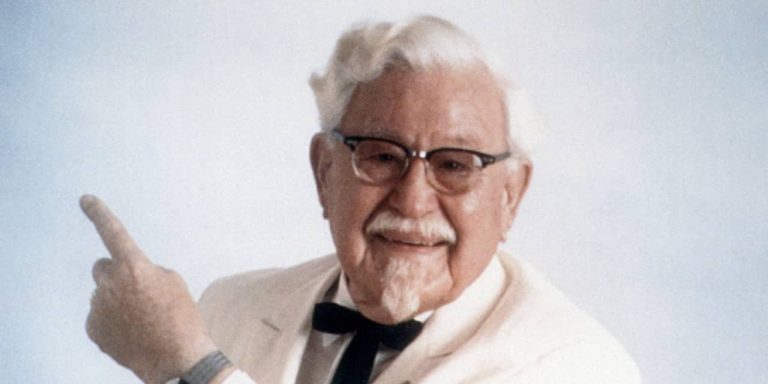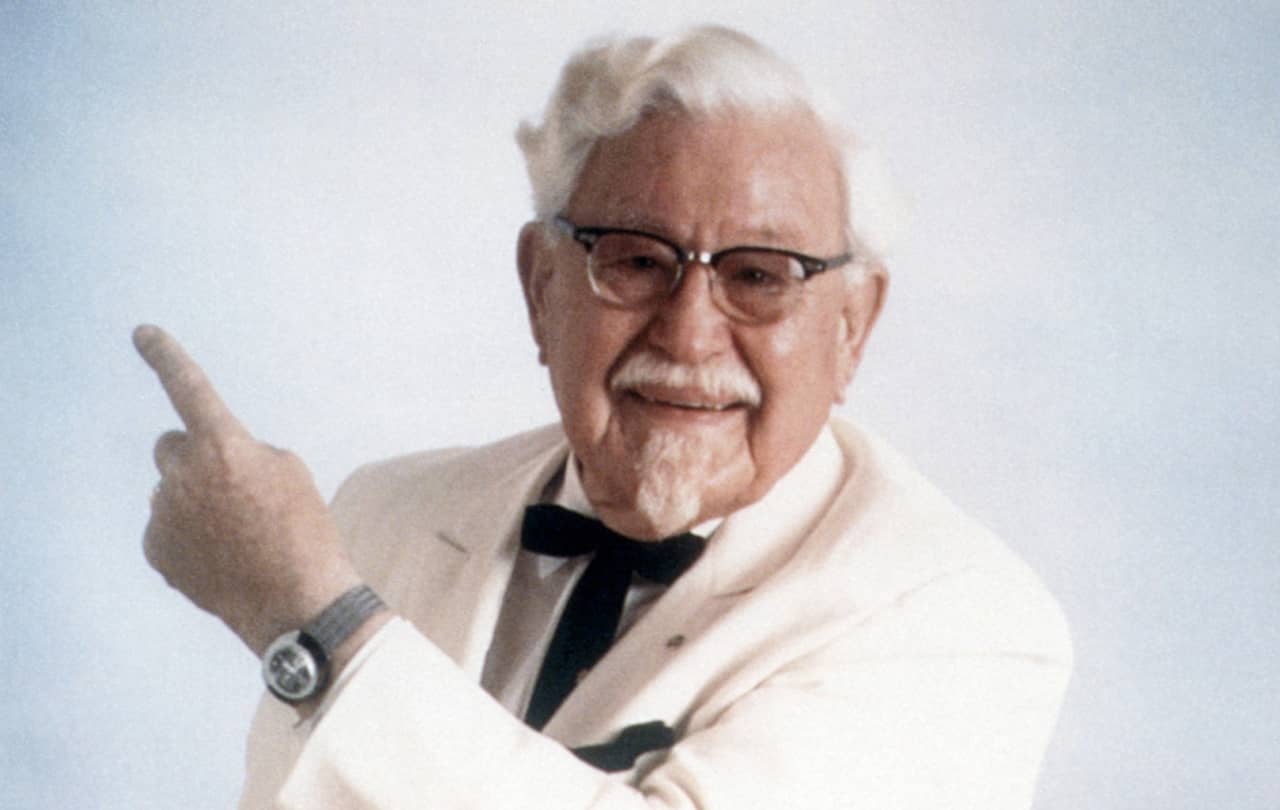I turned 60 last week, a milestone birthday that one might say marks my accession to senior citizenship and this final, uneventful chapter of life.
Naturally, this led to a number of thoughts about getting older and what I've learned (and haven't learned) over the years. But mainly, it led me to think about Colonel Harland Sanders.
Yes, I'm talking about the expert on all things fried food and birds who created the Kentucky Fried Chicken (or KFC YUM,
as it is known today). You might imagine that the good Colonel built his fast food empire over decades to turn it into the powerhouse it has become. But the story is completely different. Sanders held a number of jobs in his younger days, from being a railroad worker to practicing law, but he didn't begin perfecting his chicken recipe until much later.
More importantly: He didn't found his first KFC franchise until he was in his early 60s.
Which tells us something about the strange paths we can take in life. But for me, this is an important reminder that my best days may be ahead.
I say this as someone who's always seemed a little bemused — and maybe a little jealous — toward people who make it to the “30 under 30” or “40 under 40” lists of accomplishments you'll see in various media outlets. In fact, up until last year, I used to jokingly say that I was aiming to make the “60 Under 60” list, knowing full well that that wasn’t really a thing. The whole point of these honors is to celebrate the triumph of youth, after all.
But now that I'm 60, I find myself looking at things differently and wondering why there isn't more hype around the senior group.
The answer is obvious, of course: we are a culture obsessed with youth. Just ask any Hollywood actress who's had trouble finding a good role by the age of 40, despite the recent Oscar-worthy success of Michelle Yeoh and Jamie Lee Curtis. Or for that matter, just ask any older worker in almost any occupation who has been laid off and then struggled to find another decent-paying job.
But the truth is that older adults are starting to play a more important role in the employment picture, if not in society as a whole. A Pew Research Center study just last month reported that 19% of those 65 or older are working — nearly double the number from 35 years ago.
“A Pew Research Center study last month reported that 19% of those 65 or older are working, nearly double the number from 35 years ago.“
Undoubtedly, many older workers are still in the game because they cannot afford not to. Just consider the fact that we live in an era where traditional company-provided pensions are fairly rare, there are concerns about the future of Social Security, and the average retirement account balance for someone age 55-64 is just $71,168.
At the same time, I suspect that many older workers engage in this because they feel they still have something to offer or achieve, and they enjoy being productive in their later years. They may not aim to be on your “60 on 60” list (and I found such a list!), but they find satisfaction nonetheless. In fact, another Pew study indicated that they are much happier than younger workers, with two-thirds of those 65 and older saying they are very or very satisfied with their jobs. By comparison, only 44% of 18-29 year olds say the same.
Having just turned 60, I can't speak with full authority yet about being an older person finding their way in the world. But I have some ideas on how to make the most of being at this stage of life.
The first is that I have a better sense of clarity about how the world works — or doesn't work. It's not that I'm less inclined to suffer fools, it's that I can often spot these fools a mile away, and I'm often able to stay out of trouble as a result. I have confidence in my ability to execute my craft, as well as my ability to better deal with what I don't know and still need to learn. Maybe the best way to put it is that I gained perspective.
And the second? I have been somewhat liberated from the burden of feeling the need to climb the ladder – the corporate ladder, the social ladder, any kind of ladder. I have gained a degree of financial security that I did not have in my younger days (i.e. my children have already gone to college and their tuition is paid). And I simply don't feel the jealousy I once did about my peers and colleagues excelling or protecting my field. In essence, I'm where I am – let the chips fall where they may. Again, it's about perspective.
“I have been somewhat liberated from the burden of feeling the need to climb the ladder – the corporate ladder, the social ladder, any kind of ladder. “
This may seem like the perfect formula for someone who doesn't feel the need to succeed. But my point is that freedom from that desire may actually set a person up better for success.
I've connected with a variety of successful people in the 60+ age group, working in a wide range of fields, and have found that my ideas generally align with theirs. A telling example: Leonard Slatkin, one of the greatest American-born symphony conductors of his generation, told me that at the age of 79, he had gained the experience and technical expertise that would allow him to feel at ease with himself so that he could truly “begin to realize all the possibilities that music offers you.”
Meanwhile, Slatkin said he no longer feels stuck in the musical rat race. “When you're younger, you worry about your career,” he said matter-of-factly.
Marty Nemko, a 73-year-old career coach and author of several books, put it more bluntly. “As we get older, we're more likely to realize what's worth putting in our best efforts and what's worth letting go of,” he told me.
Even if all this were true, there remains the unfortunate fact that society tends not to give the same amount of attention to older people despite all their potential. If anything, I'm upset that it's the eldest who gets this recognition. Think of the late actress Betty White, who hosted “Saturday Night Live” at age 88, or the late financial guru Charlie Munger, who is still dishing out pearls of wisdom in his 90s.
I'm not saying that these people don't deserve attention. But it's as if society decides it's only interested in late-stage achievement when it comes too late. It's more about celebrating the weird than the everyday, as it is for the millions of us 60 and older who are living our lives and probably doing some amazing things along the way.
So, what are the great things I plan to do in the coming years? Time will tell. Honestly, I'm not even sure it's about greatness — I don't have a special fried chicken recipe to offer the world — and landing on the “60 over 60” list. Success can be defined in many ways, and achievement later in life can take the form of simply finding time to pursue hobbies and passions that could not be pursued in our busier younger years.
But either way, it's not time to rest.


